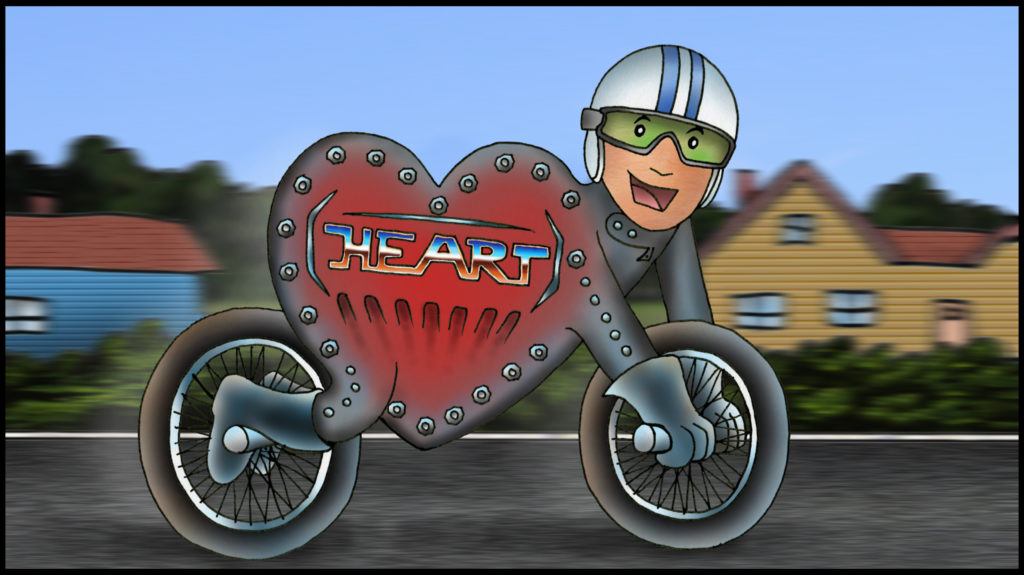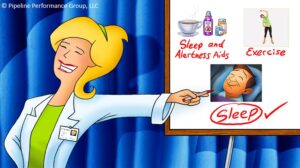Have you ever had a car, motorcycle or truck that you liked a lot? You probably took very good care of the engine in that vehicle so it would run well and for many years. How much more important is it to care for the engine that keeps your body running well?
Your heart is a magnificent organ about the size of your clenched fist. It pumps life-sustaining blood through a network of vessels that would be about 60,000 miles long if laid end to end. Your heart works ceaselessly, beating approximately 100,000 times each day. If you live out an average lifespan, your heart will have served you with three billion heartbeats. Your heart supplies your body with fresh oxygen and nutrients and simultaneously clears away harmful waste. This amazing muscle provides the support needed for the master control center, the brain.
Managing fatigue is possible only with a healthy heart. If you want to protect your brain, get busy protecting your heart. Strengthening your cardiovascular health boosts cognitive health. As the engine in your vehicle pumps fluid that sparks the action needed to move forward, your heart pumps fluid and oxygen throughout every cell in your body to keep you in action. When the heart is pumping strongly, the brain gets the energy it needs to stay alert and on task.
Impaired memory, difficulty concentrating, and drowsiness are a few of the early warning signs that the heart may not be providing optimal support for the brain. Stroke, dementia, hardening of the arteries, and Alzheimer’s disease are some of the more serious risks of poor heart and brain health.
The American Heart Association recommends that each of us get at least 150 minutes of moderate-intensity aerobic activity each week. Walking is one of the best exercises. It’s simple; it works the joints and pumps life-giving blood and oxygen through the body. Walking wakes your brain, eliminates toxins, and builds muscle. Swimming, dancing, and biking are also great options for aerobic exercise. The AHA also recommends moderate- to high-intensity resistance strengthening at least two days per week. Increase the amount and intensity of exercise, gradually, for optimal benefit.
The cardiac muscle is the most important muscle in the body. It’s a constantly working pump that forces about 3,600 gallons of blood through the body every day. Like all other muscles, the cardiac muscle is mostly made up of water. Drink about two liters of water a day to keep this, and all of your muscles, working properly.
Finally, sleep is essential for a healthy heart. People with severe sleep apnea are reported to be 58 percent more likely to develop congestive heart failure than those without this breathing disorder. Those who don’t sleep enough have an increased risk for cardiovascular disease and coronary heart disease. Making sleep a priority is vital since so many vital bodily functions occur in these hours.
Tune your engine, your heart, and help it do its part to keep you moving.
MANAGING FATIGUE EDUCATIONAL PROGRAM | Scarlet Knight © 2020 Please Distribute to Others.




